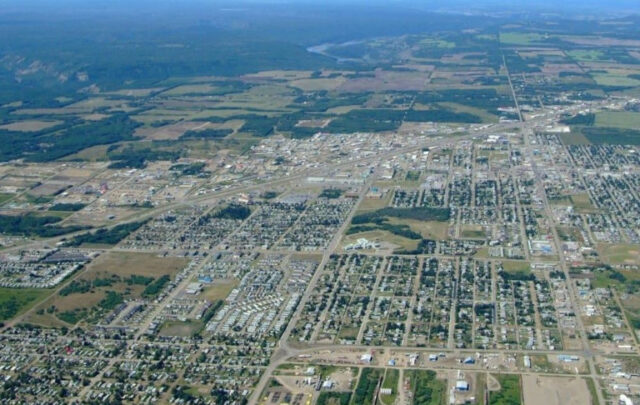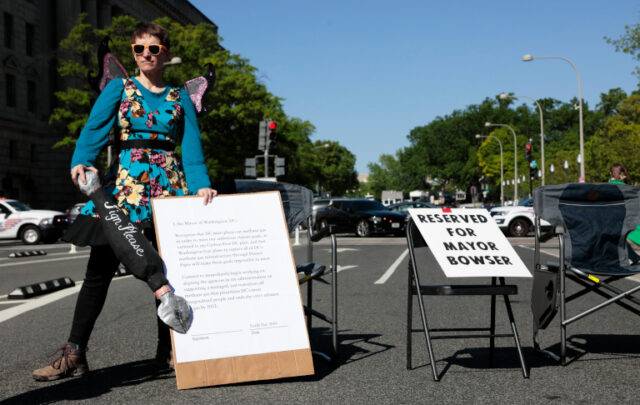Ten peak oil experts on what Japan’s crisis means to the world. Image: jchong via Flickr.
The earthquake and subsequent tsunami disaster in Japan have prompted speculation about the world’s nuclear future, the pressures on oil, and issues around economic collapse. Here’s our round-up from some of the top thinkers in the peak oil movement.
 |
James Howard Kunstler | Kunstler.com What’s happening in Japan now makes 9/11, Hurricane Katrina, and the Macondo blowout look like everyday problems. The earthquake/nuclear disaster may propel Japan more quickly onto the path of systematically downscaling and re-localizing — while other nations such as the US campaign to sustain the unsustainable. So in the medium-to-longer run, this might turn out, paradoxically, to be beneficial for Japan. They’ll get a head-start for making the new arrangements that we’ll all have to make. |
|
|
|
 |
Jeff Rubin | Jeff Rubin’s Small World If the Three Mile Island disaster in 1979 near Harrisburg, Pennsylvania is any guide, the real impact of what’s happening at the Fukushima power plant will be felt for decades. Overnight, the Three Mile Island accident undermined public confidence in the safety of nuclear power. There hasn’t been a new greenfield nuclear power station built in the U.S. for decades. And the nuclear disaster in Japan is now sure to put the kibosh on hopes of any nuclear renaissance in America. |
|
|
|
 |
Andre Angelantoni | Post Peak Living We are just at the beginning of seeing societal systems break down that we have counted on for all our lives. Instead of focusing on what is lost, focus instead on how this will create space for the resiliency of individuals and communities to take their place. |
|
|
|
 |
Carolyn Baker | CarolynBaker.com Restoring our intimate connection with the Earth does not guarantee physical survival, but it does facilitate a sense of meaning and purpose when the planet’s tectonic plates are reverberating, and we are reminded that Earth’s rage on one side of the planet will invariably and unimaginably impact our side as well. I would ask every person reading these words to take an hour or more to cease whatever you are doing. Find a very quiet place in nature, and open your heart and mind to the Earth. Ask the Earth to tell you what it wants from you. Consider that there is something important, even urgent, that you came here to do. If you don’t yet know what that is, or even if you do, ask the Earth to tell you how you can do what you came here to do and do it even more consciously and more powerfully than you ever have. Feel your connection with Earth in every cell of your body. Commit to loving and protecting the Earth in every aspect of your life — what you eat, what you consume, and how you touch the lives of other members of the Earth community from moment to moment. |
|
|
|
 |
Harvey Wasserman | Solartopia Once again nuclear power has proven itself to be a plague on all humanity. We have the technology to get to Solartopia — a totally green-powered Earth — and if we don’t use it, we will perish. Defeating King CONG — coal, oil, nukes & gas — is the first, essential step. |
|
|
|
 |
Tom Whipple | Peak Oil Review When the word came that several large Japanese oil refineries had been closed due to the quake, tsunami, and in a few cases fires, oil prices dropped on the theory that Japan would not be importing as much oil in the immediate future. As the scope of the disaster became more apparent, including the forced shutdown of 10 nuclear reactors and at least five thermal power plants, analysts were forced to rethink their initial appreciation of the situation. Just looking at the scope of the devastation, it is obvious that it will require prodigious amounts of energy, mostly in the form of diesel, over many years to clean up and rebuild from the damage. Simply moving and accommodating the hundreds of thousands who have lost their homes or been evacuated from around the ailing nuclear plants will required much added energy. The loss of agricultural land will likely require an increase in food imports. In addition, the Japanese will need to increase their imports of fuel oil and natural gas to compensate for the loss of so many electric power reactors. Rolling blackouts in the industrial parts of the country may cause many businesses and individuals to turn to backup generators, thereby increasing the demand for diesel and gasoline. |
|
|
|
 |
John Cooksey | How to Boil a Frog None of us know how the situation in Japan, or on the Earth as a whole, will play out. The Laws of Irony make plain that whatever situations we plan for, will be the only ones that don’t happen. (Turns out brain-eating zombies aren’t interested in the rice you have stored in the basement.) The China Syndrome taught us about reactor core meltdowns. Let’s make sure The Japan Syndrome isn’t a disconnection from our feelings, a triumph of intellect over empathy. |
|
|
|
 |
Michael Ruppert | CollapseNet Oil refining capacity is going to be a huge factor in the days ahead. Over the next two weeks I anticipate a serious global shortage of diesel fuel to run generators. Immediate disruptions in the supply chain, re-prioritization and recalibration of refineries around the world, plus the critical issue of delivery of refined diesel for electrical generation, is one of the two or three most-pressing issues right now. The absolute first priority however is to get control of the nuclear reactors and prevent and total meltdown at Fukushima. |
|
|
|
 |
Nicole Foss | The Automatic Earth Fear is a phenomenally “catching” emotion, and that can have serious consequences of its own, especially under circumstances where social infrastructure is already overwhelmed. A perception of cover-up would add significantly to this fear. It is therefore extremely important for the Japanese authorities to be consistently and completely forthcoming about the situation. |
|
|
|
 |
Sharon Astyk | Casaubon’s Book One of the good things that could potentially come out of the Japan Earthquake and Tsunami is an awakening of people to the reality that even in seemingly protected and developed world space, disaster, true disaster, is more common than you think, and requires basic preparedness. All of us intellectually realize that an evacuation plan is necessary – any of us can have a fire, a radiation leak, a chemical spill, a flood, a tornado, an earthquake in our region that requires evacuation. It is not so very strenuous to have a “grab and go” bag together – and the difference between escaping with the resources to meet very basic needs and escaping without them is huge. |
|
|
|
–Transition Voice Magazine
If you enjoyed this article please share it and follow us on Facebook.





